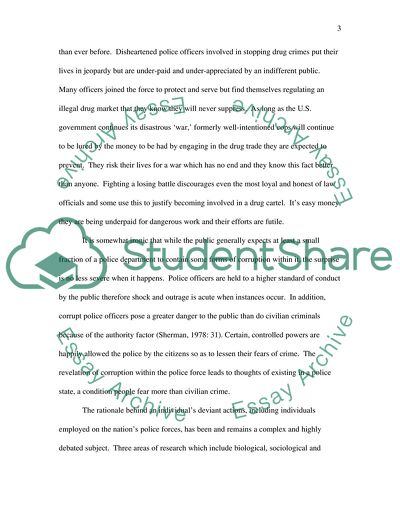Cite this document
(“Police Brutality Term Paper Example | Topics and Well Written Essays - 1500 words”, n.d.)
Retrieved from https://studentshare.org/miscellaneous/1552101-police-brutality
Retrieved from https://studentshare.org/miscellaneous/1552101-police-brutality
(Police Brutality Term Paper Example | Topics and Well Written Essays - 1500 Words)
https://studentshare.org/miscellaneous/1552101-police-brutality.
https://studentshare.org/miscellaneous/1552101-police-brutality.
“Police Brutality Term Paper Example | Topics and Well Written Essays - 1500 Words”, n.d. https://studentshare.org/miscellaneous/1552101-police-brutality.


